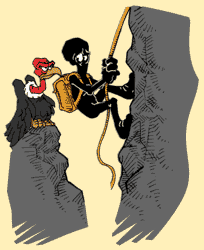 The transitions of many African countries to black majority rule have often not been happy ones. Zimbabwe is an obvious example, with the country experiencing gradual economic decline after Robert Mugabe gained control, accelerating to rapid economic decline as Mugabe gave up all pretence of governing the country for any purpose other than for the benefit of himself.
The transitions of many African countries to black majority rule have often not been happy ones. Zimbabwe is an obvious example, with the country experiencing gradual economic decline after Robert Mugabe gained control, accelerating to rapid economic decline as Mugabe gave up all pretence of governing the country for any purpose other than for the benefit of himself.
At the time of South Africa’s transition to black majority rule, it was widely feared that South Africa might head in the same direction. Nelson Mandela turned out to be an outstanding president, but it is widely perceived that his successor Thabo Mbeki did not measure up to Mandela, and Mbeki’s successor Jacob Zuma (after the caretaker presidency of Kgalema Motlanthe), a proud polygamist and subject of persistent corruption allegations, does not measure up to Mbeki.
So, how are things going in South Africa, and what does the economic future look like? According to the Census 2011 figures, average household incomes doubled in the preceding decade to almost $12,000, largely due to a growing black middle class. The average household income of black people who make up 80% of the country’s population was now $7,000, while the average white household income was $42,000. Thus, in spite of the country’s political struggles, its economic growth seems to be continuing.